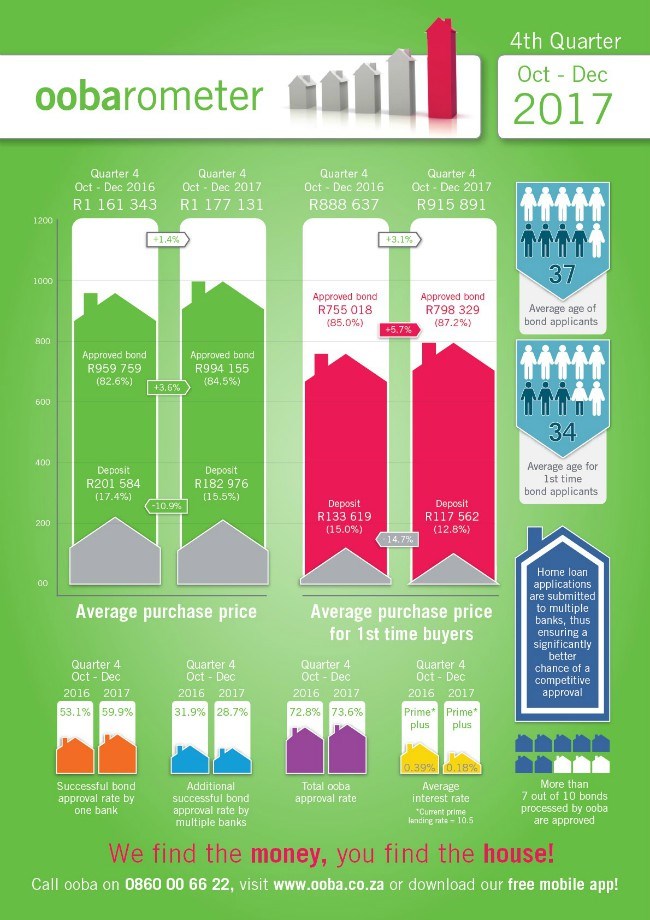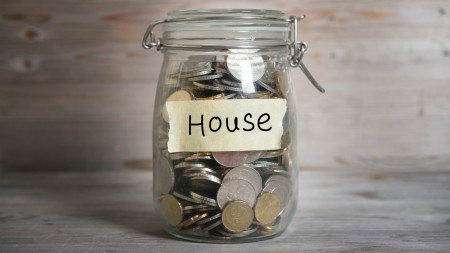While 2017 was a tough year for South Africa's property market, a more investor friendly climate could give the market a welcome boost this year.
Fourth quarter (Q4 2017) property statistics from ooba, South Africa’s leading bond originator, confirm that 2017 was a very tough year for the property market.
Rhys Dyer, CEO of ooba, says: “The property market is significantly influenced by sentiment and consumer confidence. Increased political uncertainty, low economic growth and inflationary pressures caused property buyers to ease off on new property purchases during 2017. Reduced demand for property forced sellers to adjust their prices to meet the demands of a more cautious buyers’ market, resulting in negative price growth in real terms when inflation is factored in.”
Looking ahead, Dyer believes that the election of Cyril Ramaphosa as president of the ANC at the recent ANC elective conference has created a more investor-friendly political and economic environment. Says Dyer: “We hope that the economic policy uncertainty that has challenged the South African economy for the past few years will stabilise.
“We expect the new ANC leadership to deliver improved policy certainty during 2018. If this happens, consumer sentiment will recuperate and boost demand in the property market. This in turn will drive increased property price growth over time. We can then expect the year-on-year property price growth to rise by 6% for the last quarter of 2018, compared to only 1.4% compared achieved for the fourth quarter of 2016,” adds Dyer.
Despite economic drawbacks, ooba’s Q4 2017 statistics indicate more favourable home loan conditions. The banks’ home loan books have performed well, with historically low levels of bad debts and arrears. Says Dyer: “It appears as if consumers are managing their debt well, with consumer affordability measures still improving off the highs of 2008 and 2009. As a result there is strong competition among banks to lend to home buyers. We expect a buoyant home loan lending environment in 2018.”
Improved lending conditions are evidenced by the increase in the ooba approval rate from 72.8% in in Q4 2016 to 73.6% in Q4 2017. The average interest rate ooba achieved for its customers also improved considerably from an average of 0.39% above prime in Q4 2016 to 0.18% above prime in Q4 2017.
“With the Rand already significantly stronger post the ANC election, and with inflation well within the target range, there is also a possibility that we could see an interest rate reduction in early 2018. All in all, the early signs are there for a robust year of growth in the property and home loans market,” says Dyer.
“The current market presents an opportune time to invest in property before any good news in the economy factors into higher property prices. Prospective buyers should take advantage of the free and convenient services of a bond originator like ooba to secure the best home loan deal,” concludes Dyer.





